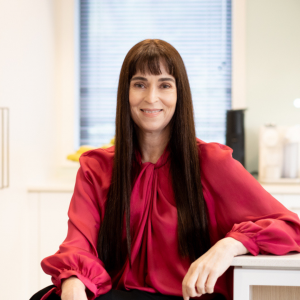Christel Fouche is the health and safety coach at BEACON Auditing, Coaching and Training, based in New Zealand. She is one of only five lead auditors registered with Exemplar Global for ISO 9001, ISO 14001, and ISO 45001 in New Zealand. Christel also acts as a contractor auditor and tutor for various certification bodies.
Christel’s passion for health and safety was born from her early career days working as a computer programmer for the largest health and safety company in her native South Africa, the National Occupational Safety Association. After 32 years working in the health and safety industry, she hasn’t looked back.
In this conversation, we discuss her work experiences leading up to the founding of her own consultancy, her biggest career achievements, her views on training, and predictions about the key changes for the industry in the years to come.
EXEMPLAR GLOBAL: It’s always interesting to hear about how auditors found their way into the industry. Can you tell us your story and how you came to discover management system auditing specifically in the health and safety field?
CHRISTEL FOUCHE: I started many, many years ago as a computer programmer for the largest health and safety company in South Africa, the National Occupational Safety Association (NOSA). My office was a computer room, and it was just boring. Then I heard all these people talking about the health and safety area, and I started getting interested. I heard there was a health and safety position vacant, I applied, and I got it.
Thirty-two years later, it’s the love of my life. I spent the first 10 years of my career at NOSA, and then I decided I want to be entrepreneur. So, I started my own business called Advantage ACT. Then I emigrated to New Zealand where I joined Impac Services Ltd. where I expanded my experience in the areas of safety, health, environment, quality, auditing, and training in the Pacific region.
EG: Can you tell us more about your own business BEACON Auditing, Coaching and Training?
CF: There are a few facets to my business. I am a contract auditor for certification bodies, where I audit ISO 9001, ISO 14001, and ISO 45001 and some of the other standards. I also do stage one or stage two audits as part of the certification process, surveillance audits, and recertification audits. So, that keeps me quite busy, and I love that it gives me the opportunity to work with a variety of global and local organizations.
The other part of the business is where I assist clients through coaching. This is where, as an alternative to appointing someone at a very high rate, they can talk to me during a one-on-one session and get access to my 32 years of experience.
During a coaching session, we look at what happened over the last month, what unravelled and what the key challenges are and then we work on solutions. We also look ahead to the coming month and strategize around our objectives for the year and what must be done to keep on track.
So that’s one major part of the business. The other one is where I offer ISO 45001, ISO 14001, and ISO 9001 introduction and internal lead auditor courses. And then the last one is conducting gap audits, which is my passion. The big advantage of gap audits is that I can pull the client’s management system apart with love in my heart. It’s a valuable opportunity to take a proper look at everything and to identify opportunities for improvement, especially before important 3rd party audits.
What we try to accomplish is a stressless audit by identifying areas of concern early, fixing it so there is no risk of losing their certification or that their certification might be withdrawn. My audits are probably one of the strictest audits you could conduct because by now, I know my way around management systems and where the common weak points might be.
I then prepare a huge audit report that the client can use as an action plan to close the gaps. Because I am so strict with my audit process, I can confidently say that they have a very good chance of getting certified.
EG: You’ve had such an interesting career pathway. What would you say have been your biggest achievements over the course of your career?
CF: Many years ago, when I started, I was the only woman working in the industry. It’s great to now see how many women are in health and safety as managers, specialists, or advisers. That makes me extremely happy and proud to see that we have empowered women in the health, safety, and environment space, which was traditionally a male-dominated environment.
I think another big achievement for me is that I’m changing the perceptions of who the auditor is, what we do and the outcomes we generate, for the board, the senior management, and the company overall. For example, I had a client audit where loads of nonconformances were generated, and we couldn’t put them forward for certification. After hearing the news, the CEO thanked me and said, “It’s not good news, but we’re looking forward to receiving you here again in six months to see our improvements.” So that transformation around them embracing negative news was huge for me. It has a lot to do with how we, as auditors, communicate our value.
EG: That’s a huge “A-ha” moment. What other changes have you seen over course of your career, and what further changes do you foresee for the profession in years to come?
CF: Have you ever heard the saying about auditors – they are the people coming back to the battleground after the war is over to stab the wounded? Now, that’s how some people describe the older type of auditor. I sometimes wish we could remove the word “auditor,” because it’s still seen as a negative concept for some.
For example, I’ve heard of people getting high blood pressure, panic attacks and bursting into tears within the first couple of days of an audit, and that’s not how it should be. That’s why I like to describe and position myself as a “continual improvement partner” when discussing an audit with my clients. It is about me working to add value to the audit process for my clients and the certification bodies. This has really changed things for me in terms of building long-term relationships with my clients, particularly over the last five or 10 years.
But unfortunately, we do still have a lot of people calling themselves auditors when they really shouldn’t be. For some, the level of competency is a problem – they don’t have the necessary qualifications, knowledge, and experience. This leads to a negative perception of auditors – “investigators” that come in to find fault, so I think that this needs to change.
I also think the industry’s approach to nonconformance need to change. You should embrace and welcome a nonconformance. There’s no such thing as a perfect system. The certification bodies also need to be stricter with the selection, approval, and registration of our auditors. I don’t think that doing an internal auditor or lead auditor course is enough and doesn’t make you a competent auditor.
In the old days, to become an auditor required 20 days of auditing experience under the guidance and direction of a lead auditor. And then on top of that, we did a further 15 days of lead auditor-in training to become a lead auditor. Somehow this has disappeared, or it hasn’t been followed as strictly as it should. This has impacted the quality of auditors working in the industry, which is a huge problem because a sub-par audit undermines the value of receiving certification for your management system. People are not dumb – if you can’t trust the auditor’s ability, then how can you trust your management system?
EG: That’s fascinating to hear how the industry’s approach to training has shifted so much over time. In terms of training, what would your advice be for people that are starting out in the industry?
CF: Well, first of all, auditing is a profession. So, I would encourage them to look at auditing as their craft and their passion. They need to approach it in the same way they would approach a career as an engineer or an architect.
A two-week course is not going to make you a professional auditor, so look at your five-year plan. Invest in yourself by completing “building blocks” of knowledge like a two-day health and safety course, a two-day incident investigation, a risk assessment course. Then have a look at available qualifications, like getting a NEBOSH certificate or a NEBOSH diploma or doing a university course to gain a health and safety degree.
This will enable you to slowly and surely build up the knowledge that will underpin your ability to add value as an auditor. But please realize that you will not become an auditor within a year or two. Persevere – it’s worth it. If you’re passionate about auditing, it can be a very rewarding career.
The other piece of advice I’d give is that no auditor knows everything. Decide where your priorities lie and slowly but surely build your knowledge and experience. It’s important to be patient, it takes time to become a qualified and competent auditor. I’d also advise that they aim towards becoming a lead auditor, because as an auditor you need to function under the lead auditor. Whereas if you’re a lead auditor, you can do sole audits on your own. Aim for the ultimate and go for the highest qualifications possible. The five-day lead auditor courses may be difficult to go through, but it is worth it – always choose a reputable training provider.
EG: And lastly, what are some of the skills of an auditor, that perhaps aren’t easily recognized, that we should be looking for as we try to recruit more people into this business?
CF: That is a good question; this is what I refer to as the “soft skills” you need to succeed as an auditor. I think one of the most important ones is that you need to be a people person. You need to be able to interact with different people at different levels within an organization, from the board to the CEO to the worker who is doing all the hard work, is exposed to the risks and, unfortunately, gets injured.
Secondly, I always say that, as an auditor, you’re the psychologist; the teacher; and the mentor. And these are soft skills once again. You need to acknowledge their stress and perceive what the organization’s audit culture is. For example, if this person doesn’t get the result, his or her bonus might be in jeopardy, or they might even lose their job – it is so old school, but it still happens today. The auditor’s job is to address all the fears at the start of the audit – let them talk and start the audit when everybody is on the same page.
Another big one is conflict management. I’ve had a person that just pushed his chair back and said, “I’ve had enough, I am not interested in the rest of this audit.” How do you manage that professionally so the audit can continue? Once again, it’s due to the stress factor that people react in that way. A lot of the time I have found that communication is key in such a situation. Take some time out to talk, forget about the audit for a few minutes and try to find common ground again. It is the auditor’s role to maintain an auditing experience that produce positive outcomes for everybody, even when the audit is not going well.

